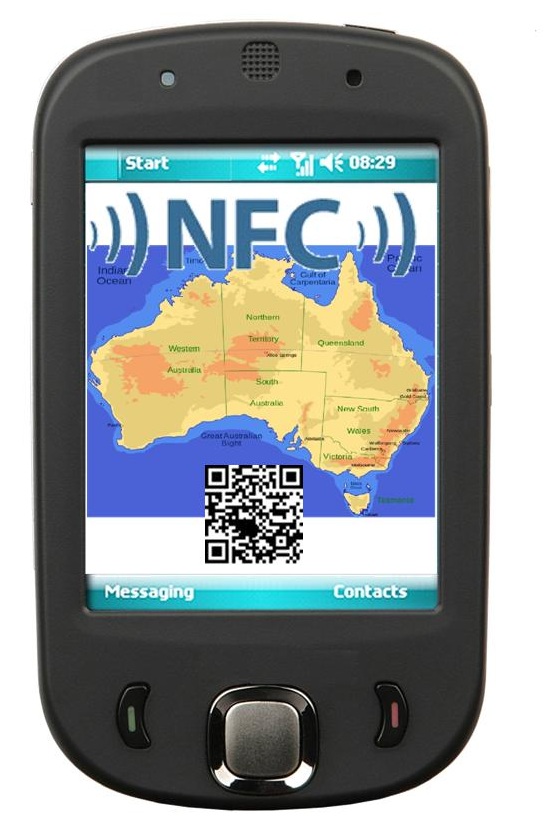Mobile payments gain traction in Australia
As mobile commerce grows more popular around the world, new payment platforms are emerging in several markets. In Australia, mobile payments start-up FLASHiZ has announced its official opening in Sydney. The start-up has plans to launch its new mobile payments platform in the coming months in an effort to engage the growing number of mobile consumers in Australia. FLASHiZ aims to make mobile payments as accessible to consumers as possible and will be focusing on numerous tools to ensure that this is possible.
FLASHiZ puts QR codes and NFC tags to good use
FLASHiZ leverages both QR codes and NFC tags in order to facilitate mobile payments. NFC technology has long been a staple in mobile commerce and most modern mobile commerce platforms are based upon the technology and its capabilities. Not all mobile devices support NFC, however, which is why FLASHiZ also makes use of QR codes. The codes help facilitate mobile payments for those that do not have NFC-enabled mobile devices.
 New platform can help with loyalty programs
New platform can help with loyalty programs
FLASHiZ expects that its mobile payments platform will be integrated into stores and other sectors in the coming months. The company’s software could serve a variety of purposes as it does not only involve mobile commerce. FLASHiZ notes that its software can be used to develop and manage loyalty programs designed to engage consumers that rely heavily on the smartphones or tablets.
FLASHiZ may be able to find success in mobile payments
Mobile commerce has been seeing modest growth in Australia recently, but the country is still considered an attractive market for this sector. Companies like FLASHiZ are becoming more common as demand for new mobile payments platforms grows. Larger companies have yet to find significant traction with consumers in this sector, which may provide FLASHiZ with an opportunity to find some degree of success in its endeavors.
Wallet has yet to find traction in mobile commerce
Google has been a big name in the mobile commerce space, but not necessarily a well-loved name. The company’s Wallet platform, which exists to facilitate mobile payments, has been the recipient of harsh criticism since its launch. The early days of Google Wallet were plagued by serious security issues that drove many consumers to other mobile commerce platforms. While these issues were ultimately resolved, Wallet experienced other hardships that made it unpopular with consumers, with companies like Verizon refusing to support the mobile commerce platform for various reasons.
Google continues to invest in Wallet platform
Google may have a strong interest in mobile commerce, but the company has not been able to find any significant traction in this sector. Google has invested more than $300 million into the Wallet platform, which also includes the acquisition of companies that had specialized in application development and mobile commerce. The company has also devoted more than 100 developers to focus solely on the Wallet platform. Despite this support, the Wallet has only seen 10 million downloads worldwide, a very low number in the mobile space.
 Wallet fails to enthrall consumers
Wallet fails to enthrall consumers
One of the reasons that Google Wallet has not become the dominating force in the mobile commerce space has to do with U.S. telecommunications companies. Few of these companies are interested in supporting the Wallet due to the other alternatives that are available. Lack of support means less exposure with consumers, which means that fewer people even know that Google Wallet exists. In the case of Verizon, AT&T, and T-Mobile, these companies have teamed together to launch their own mobile commerce platform called Isis, which has thus far proven to be somewhat more popular than the Wallet despite a very limited release.
Google may abandon Wallet platform, eventually
The Google Wallet was once considered by Google to be the key to mobile commerce success, but the platform has become a serious money sink for the company. It is uncertain how long Google will continue to devote money to the Wallet platform, but the company has not yet shown any signs of abandoning its mobile commerce endeavors.
 New platform can help with loyalty programs
New platform can help with loyalty programs
 Wallet fails to enthrall consumers
Wallet fails to enthrall consumers